By Perekeme Odon
BAYELSA STATE
Bayelsa State, tagged "The Glory of All Land," was created on October 1, 1996, out of Rivers State. It is located in southern Nigeria, in the Niger Delta region. Its capital is Yenagoa, and it is bordered on the west by Rivers State, on the east and south by the Atlantic Ocean, and on the north by Delta State.
The state has eight local government areas, namely:
Kolokuma/Opokuma, Brass, Nembe, Sagbama, Ekeremor, Ogbia, Yenagoa, and
Southerner Ijaw, with an area of 21,100 km2 and a population of 1,998,349
inhabitants as of the 2006 census.
The main language spoken is Ijaw, with dialects such as Kolukuma, Mein, Bomu, Nembe, Epie-Atisa, and Ogbia. Like the rest of Nigeria, English is the official language. The predominant religions in the state are Christianity and traditional worship.
The major occupations in the state are fishing, farming, palm oil milling, lumbering, palm wine tapping, local gin making, trading, carving, and weaving. The state is blessed with an abundant supply of crude oil and natural gas, and she has other mineral resources such as clay (used in pottery and porcelain production), limestone, manganese, lead or zinc, fine sand, and potentially uranium, gypsum, and lignite.
The state is a major oil and gas producing area, and it contributes over 30% of Nigeria’s oil production. There are hundreds of oil wells and flow stations across the state. Oloibiri, in the Ogbia local government area of the state, is where oil was first struck in Nigeria in commercial quantities in 1956. Gas production activities are currently intensifying in the state. The liquefied natural gas plant that supplies 53% of the gas feedstock to the plant in Bonny is located in Oluasiri in the Nembe local government area of Bayelsa State.
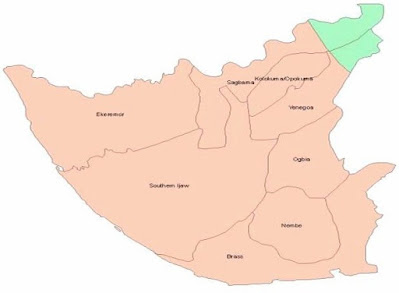 |
| Map of Bayelsa state |
There is no doubt that Bayelsa State has a wide variety of customs, traditions, festivals, music, arts, crafts, folklore, artefacts, museums, and monuments.
Bayelsa State is blessed with many centres of historical attraction. Some of these attractions are the Slave Transit Hall, Akassa, the Oloibiri Oil Museum, the Akassa Raid Graveyard, the War Boat at Aleibiri, and Manilla and Bronze Heads in the Opokuma Forest near Oloibiri. Henry Seriaki Dickson is governing the state.
KAIAMA TOWN
Kaiama, headquarters of Kolokuma/Opokuma Local Government Area of Bayelsa State, is situated at the River Nun in the south of Nigeria. Like many other towns in the riverine areas, its main occupations are farming, fishing, woodcraft, and trading. The town is 20 square kilometres and has existed since the 16th century, with a population of over 5,300 inhabitants as of the 2006 national census.
 |
| Kaiama Bridge |
Christianity and traditional religion are the two fundamental religions practised. The culture of the people is conveyed in their exclusive dress styles, festivals, nutritional habits, arts and crafts, folklore, dancing, and music, which makes them unique from other ethnic groups or tribes. The mangroves, forest, and rivers are vital to the livelihood of the community.
Historically, Kaiama is famous for being the birthplace of Major Isaac Jasper Adaka Boro, an Ijaw nationalist who, on February 23, 1966, proclaimed "the Niger Delta Peoples Republic".
ISAAC JASPER ADAKA BORO
Isaac Jasper Adaka Boro, fondly called Boro, the anchor and patriarch of the Ijaw Nation and Niger Delta struggle, was born on September 10, 1938, at Oloibiri in Ogbia Local Government Area of Bayelsa State, where oil was discovered in commercial quantities in Nigeria. His father, Mr. Jasper Pepple Boro, was then headmaster at the only mission primary school in Oloibiri. Boro was many parts to several people.
He attended primary school at Oloibiri and thereafter attended Hussey College in Warri, Delta State, where he was once Senior Prefect and graduated in 1957. At 20, he taught briefly as Deputy Headmaster at St. Stephen's Primary School, Amassoma, in 1961 before joining the Nigeria Police Force as a Cadet Officer.
 |
| Niger Delta Voluntary Service (NDVS) |
Dissatisfied with the "divided-dominate (balkanize)-and-rule" policy of the majority ethnic nationalities, he left the police force and pursued a degree course at the University of Nigeria, Nsukka, Anambra state.
Before the declaration, Isaac’s father, Mr. Jasper Pepple Boro, offered his son sponsorship abroad to further his education rather than take up arms against the government. He feared that the action would ruin the family. Boro rejected his father’s offer. He explained that "the Ijaws were going into perpetual bondage; if we did not strike now, not only our families but also the entire Ijaws would be infernally chained." He had been influenced by the Cuban Revolution of 1959, led by Fidel Castro.
 |
| Isaac Boro's Arrest |
The next day, he made a prophetic address to the rebels before they struck: "Today is a great day, not only in your lives but also in the history of the Niger Delta. Perhaps it will be the greatest day for a very long time. This is not because we are going to bring the heavens down, but because we are going to demonstrate to the world what and how we feel about oppression. Before today, we were branded robbers, bandits, terrorists, or gangsters, but after today, we shall be heroes of our land".
Isaac Boro felt that the exploitation of the resources in the Delta region benefited mainly the Federal Government of Nigeria and the Eastern region, which then had its capital in Enugu.
 |
| Esther Boro: Isaac Boro's Daughter |
In view of the maltreatment and exploitation of his people and resources of the Niger Delta Region, Isaac Jasper Adaka Boro, a Chemistry graduate and one time Student Union President at the University of Nigeria, Nsukka in 1964/65 session formed ‘Integral WXYZ’, backed by Samuel Owonaro, Napoleon Selete, and Nothingham Dick, which led to ‘Reserved Operational Zero and later metamorphosed into the Niger Delta Volunteer Service (NDVS) within days of the announcement of the coup in 1966 and translated the struggle for self determination and resource control initially pursued by Chief Harold Dappa-Biriye and his contemporaries through constitutional measures, into armed battle by unilaterally declaring independence for the Region, Niger Delta Peoples Republic, on February 23,1966, first in Africa. Thus leading the first revolution of resource control in Nigeria a few months after Gen. Aguiyi Ironsi became the Head of State of Nigeria.
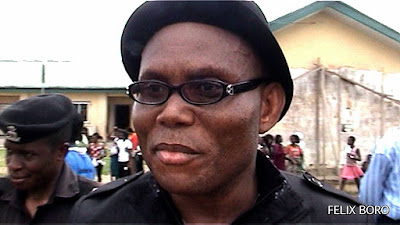 |
| Felix Boro: Isaac Boro's Son |
In his famous immortal words, he said "I, Isaac Jasper Adaka Boro, a Niger Delta citizen from the town of Kaiama, today herein sworn-in at the Revolutionary Camp of the Niger Delta Volunteer Service (NDVS) as General Officer Commanding (GOC) the NDVS, do solemnly declare to uphold the natural rights and integrity of the Niger Delta people and fight with my life for the restoration of same, so help me God".
Boro, along with his group of just about 150 volunteers, gallantly battled the federal force, but his NDVS, the first armed militia of only Ijaw extraction, was crushed by the far superior federal firepower after 12 consecutive days of intensive fighting with the federal troops at Mbiama River in the present Rivers State.
 |
| Isaac Boro's Arrest |
Following the crushing of the insurrection by the Federal Government, Isaac Boro, as expected, was incarcerated, tried for treason, and sentenced to death on June 21, 1966, by the General Aguiyi Ironsi-led military government.
After the creation of Rivers State on May 27, 1967, and on the eve of the civil war, Isaac Boro and his lieutenants were released and granted amnesty by General Yakubu Gowon, on August 4, 1967. Boro was enlisted and commissioned into the Nigerian Army as a Second Lieutenant without recruitment, along with other NDVS heroes.
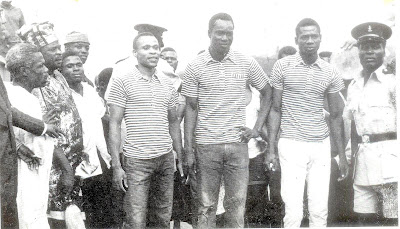 |
| Isaac Boro, Sam Owonaro & Nottngham Dick Released |
Boro, strongly assisted by Captain Timmy Sam Owonaro, Warrant Officer Nottingham Dick, Captain Boardman Nyananyo, Captain George Amangala, and others, organised, set up an amphibious unit of 1000 Ijaw volunteers, and persuaded the federal authorities to permit them to liberate the Niger Delta areas occupied by the Biafran army.
Adaka Boro was made commander of the 19th Brigade under Colonel Benjamin Adekunle. With their deep knowledge of the Niger Delta creeks, he fought alongside Col. Benjamin Adekunle, who was heading the 3rd Marine Commando Division of the Nigerian Army, apparently to help crush the Biafran presence in the Niger Delta Region, which he successfully did within a record short period and was hailed by the Military Headquarters in Lagos. He famously danced in Okrika when the locals came out to celebrate their hero.
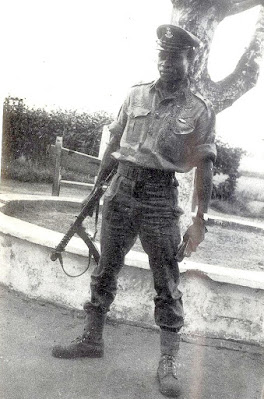 |
| Major Isaac Adaka Boro |
Boro rose to the rank of Major and served meritoriously on the battlefield, where he eventually died in Ogu, near Okrika in Rivers State, on May 16, 1968, in the heat of battle after liberating the Niger Delta from the Biafran forces. The Gowon administration hailed Boro as a hero. He was buried in Ikoyi Cemetery, Lagos State..
Isaac Boro took the name Adaka, meaning "lion," when he began his revolutionary campaign to create an independent Niger Delta Republic and secede from Nigeria in 1966. He fought Nigeria as a rebel, then fought for the unity of the country, dying in the uniform of the Nigerian Army as a major. It was a case of a man meeting a nation and sacrificing his life for its future.
Isaac Boro fought and sacrificed everything within him for the Ijaw/Niger Delta advancement struggle. In recognition of his qualities, the first military governor of the old Rivers State, then Navy Commander Alfred Diete-Spiff, immortalised Isaac Boro by naming an amusement park in Port Harcourt after him. Chief Melford Okilo named a street in Port Harcourt after him.
 |
| Isaac Boro |
After the creation of Bayelsa State on October 1, 1996, and the indelible contributions of Isaac Boro to the unity and sovereignty of Nigeria and freedom for his people, the Governor-General of Ijaw Nation, Late Chief Dr. D.S.P. Alamieyeseigha, J.P., established the Isaac Boro Foundation in 2003, erecting the Major Isaac Adaka Boro State of Freedom at Kaiama on May 16, 2005. The Federal Government also compensated the late Isaac Boro with a posthumous award of Officer of the Order of the Niger (OON). Also, the Niger Delta University awarded Isaac Boro the posthumous degree of Doctor of Philosophy honoris causa.
Forty-nine years after his death, Major Isaac Adaka Boro is still remembered as a hero in the Niger Delta Region and, by political arrangement, the South-South geopolitical zone.
 |
| Isaac Jasper Adaka Boro |
Isaac Boro staked his life to fight for a Niger Delta Peoples Republic for his people, which led to the creation of Rivers State in 1967. He died after its creation during the Nigerian civil war. Today, the people of the Niger Delta are enjoying most of his legacies.
Isaac Boro was the first to translate and champion the struggle and agitation for economic and minority rights now raging in southern Nigeria from an armed perspective. His dynamism, bravado, and commitment have inspired youth interest in self-determination, true federalism, freedom, and resource control.
He chooses not to negotiate for himself and his compatriots; rather, he takes the side of liberating his land and people, not selfishly for his own personal gains or interests, not even for the well-being of his pocket and that of his family.
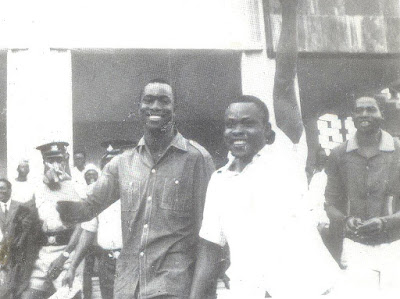 |
| Isaac Bor Regained Freedom |
While Isaac Boro has died, his far-reaching visions and aspirations do not only inspire but also continue to "resurrect" in different forms and forums. One of these early forums was the Niger Delta Forum. The Forum is an NGO committed to sustainable development and environmental education in the region founded in 1988.
Major Isaac Boro's vision and aspirations undoubtedly inspired the Ogoni Bill of Rights led by Ken Saro-Wiwa of Rivers State in 1990, the Chikoko Movement of Bayelsa State in 1997, the Kaiama Declaration of Bayelsa State in 1998, the Oron Bill of Rights of Akwa Ibom State in 1999, and the Warri Accord of Delta State in 1999.
The celebration kicked off on May 16, 2013 at Kaiama, with the commissioning of the Boro town link road and the foundation stone laying ceremony of Isaac Boro Mausoleum by Governor Seriaki Dickson, Late D.S.P. Alamieyeseigha, and other Ijaw dignitaries, as well as free medical services.
Governor Seriake Dickson, who laid a wreath in honour of the late activist, agreed that nothing much had changed since the passing of the late soldier.
 |
| Amb. Dr. Godknows B. Igali |
At the Banquet Hall in Yenagoa, Bayelsa State, a special command performance of Isaac Boro's play, written by Simon Ambakederemo and performed by the Bayelsa State Council for Arts and Culture, Troupe, to the chagrin of everyone present, was a sight to behold, with a lecture titled, "Oil and Peace: Compatibility for Sustainable Growth in Nigeria," which was delivered by former US Presidential candidate and Civil Rights Leader, Rev. Jesse Jackson. There were also musical performances by Timi Dakolo, concerts, and cultural displays.
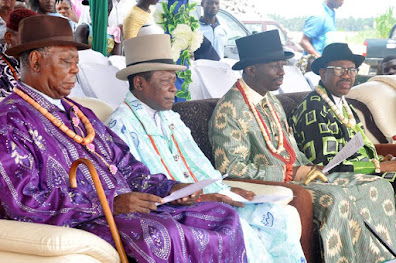 | ||
| L-R HRM King Alfred Diete-Spiff, HRM King Mozi Agara |
However, in May or June 2014, his exhumed body was brought to his ancestral home, Kaiama, with pomp and pageantry to accomplish his final journey. A colloquium was organised with civil rights activist and global humanitarian Dr. Martin Luther King III present as guest speaker, while former Head of State General Yakubu Gowon (Rtrd) was the Special Guest of Honour. Isaac Boro was laid to rest at Kaiama for a night and later taken to the Heroes Park in Yenagoa for final interment.
As a hero of the Niger Delta and Nigeria, every 16th day of May since 1969, Ijaws worldwide come together at Kaiama, Bayelsa State, to remember and celebrate his great works and sacrifices, with the only compatriot alive, Pa Sam Owonaro, for being a worthy patriarch of the Ijaw and Niger Delta Struggle and Survival.
Isaac Boro, father of Deborah Waritimi, Esther Boro, and Felix Boro, once solemnly declared, "I will uphold the rights and integrity of the Niger Delta People and fight with my life for the restoration of same, so help me, God". And he died upholding his solemn declaration or pledge.
But today, some people see the tears and visions of a hero whose
fight and struggles have been hijacked by greedy, self-serving opportunists
whose only interest is using the struggle to amass wealth and influence for
themselves while the people and region remain in anguish.
Boro was like the idealistic Ernesto Che Guevara and the inspiring Bob Marley,
both of whom died at 36, and the fiery internationalist Franz Fanon, who died
at 39. All four were captured in the midst of time.
 |
| Hon. Tonye Isenak(L) & Brother |
The cry of a true son of the Ijaw nation, sadly looking at how their own brothers and sisters have continued to contribute in no small measure to their present state of stagnation and rural dwellers impoverishment
The anger of the warrior and fighter against social injustice, economic oppression, and imbalances steers many in their faces daily, as the gap between the few rich, wealthy, privileged, and opportune leaders and the increasingly majority of poor Niger Delta gets wider daily.
What Boro fought and died for had eluded his people for years. The Niger Delta has remained impoverished despite the huge revenue it has continued to generate for the country. Oil fields and mining leases have been allocated to northern oligarchs and friends of military dictators and politicians. Isaac Boro remains a lesson for future revolutionaries in knowing where to pitch their tent.
FESTIVAL
There are lots of festivals in Bayelsa State that are celebrated annually, seasonally, and periodically. Some of these festivals are diverse due to the various tribes in the state, and this brings about unity and understanding among the people.
Like many other cultural festivals in Ijaw land, the Isaac Boro festival is one of the biggest festivals in Bayelsa State and Ijaw Nation, successively at par with the Buffalo festival of Odi. It is commemorated annually in Kaiama town from May 14–21. Ijaws and Niger Delta people all over the world celebrate Major Isaac Boro annually as the hero who spearheaded the movement for the self-determination of the Ijaw nation.
 |
| Festival Chairman: Inemo Samiama |
This year’s festival began with a praise night and candlelight procession at Kaiama, the country home of the late Ijaw hero Isaac Boro, on May 14, 2017, then the official opening ceremony on May 15 at the Reverend Proctor Memorial School field in Kaiama, Kolokuma/Opokuma Local Government Area, with a well-attended crowd to watch a recapped drama of Isaac Boro’s time and trial by the Bayelsa State Council for Arts and Culture and written by Simeon Ambakederemo. Present at the 2017 opening ceremony were the former Governor of Rivers State and current chairman of the Bayelsa State traditional chiefs council, His Royal Majesty, Alfred Diette-Spiff, and several other royal fathers.
 | |
| Bibonimi Blessing (Miss Boro 2017) |
Other presentations by Popular Alaska and the Gbasologbasolo Band of Odi also thrilled the audience, with royal majesties, government officials, and prominent sons and daughters of the Niger Delta in attendance.
Activities of the festival comprise a boat regatta, where the re-enactment of traditional war boats is being re-fabricated. Love boat, street carnival parade, no big man for road procession, cultural dances, and swimming competitions.
Various live band performances of three Owigiri nights featuring distinctive
popular prominent Ijaw highlife musicians of King Robert Ebizimor Music Band,
Barr. Smooth, Izonebi Alfred aka Junior Robert, and The Great Kelly Ebinimie
 |
| Lydia Ikioumoton and friends at the Women's Day |
Apart from celebrating the festival, it is still a time when the sons and daughters of Kaiama and Ijaws near and far come home. Visitors from all walks of life troop the Kaiama to participate in the celebration of the festival.
The festival also increases the chances for a series of meetings to be held about the advancement of their homes and community. Nowadays, marriages are contracted at various locations in the community to enhance the festive celebration.
 |
| War Boat Regatta Photo Credit: Bodise Wilson |
Other highlights of the week-long festival include football competition, canoe racing by various compounds in Kaiama community, wrestling procession and championship, Oou Sei masquerade dance, beauty pageant, and the unlimited Women’s Day, where women from various compounds came out in their fashionable numbers to party with friends invited, and likewise showcase and recreate different performance genres like the real Ijaw woman’s dressing, Ijaw language competition, and drama competition.
Communal festivals in our localities are very important and go a very long way to reshaping our society in such a way as to reduce any socioeconomic injustices and eradicate extreme levels of poverty among individuals. Cultural festivals in Africa create an atmosphere of a caring society in which the welfare of individuals, particularly the handicapped and the disabled, will be of concern to all, a society with high moral and ethical standards. Such a society will always be united and bonded by love and oneness.
A symposium with the theme IZON UNITY AND DEVELOPMENT: A NEW STRATEGIC PARTNERSHIP, with Ambassador Godknows Igali, Niger Delta activist Lady Ann-kio Briggs, Nollywood actor and lecturer, Dr. Sam Dede, Comrade Ekpein Appah, Dr. Udisi, and other intellectuals were all present to deliver lectures.
Legacy projects such as the ‘Go Green Kaiama’ tree planting exercise put together by Hon. Tonye Isenah were applauded and received with much admiration. The "Go Green Kaiama" project commenced following a solidarity visit to the only survivor and second-in-command of the Isaac Boro 12 Day Revolution, Chief Sam Owonaro, at his residence in Kaiama.
 |
| Chief Sam Owonaro & Comrade Ekpein Appah |
An extra plus of the festival was the Century Group free medical outreach exercise for everyone, sponsored by Chief Dr. Ken Etete, which tested and provided drugs and glasses for people with sight or eye complications.
On the last day of the festival came the beach party and Boro Splash, where various home-based and foreign artists were invited to display their crafts, including the Great Kelly Ebinimie, who, alongside his band, rendered a world-class performance of traditional high-life owigiri music to the delight of his fans and visitors. This was the only paid event for the audience, as every other event during the festival was free.
 |
| Drama By The Bayelsa Council For arts & Culture |
The Isaac Boro festival is not connected with rituals or sacrifices in any form. It is wholesome festivity: singing, drinking, dancing, sports and games, bazaars, and lots of cultural activities. New relationships are contracted, fashions are advertised, photographers and vendors of food are on display, and magic and all modes are also on parade to give life and strength to the festival for seven days.
Communal festivals in our localities are very important and go a very long way to restructure our society in such a way as to reduce any socioeconomic injustices and eradicate extreme levels of poverty among individuals.
 |
| Boro Drama performed By The Bayelsa State Council for Arts & Culture |
The festival is akin to the Osun festival, which preaches love, peace, and harmony, even if that was not the idea during conception. The festival is key to fostering unity and sustaining rapid socioeconomic development among the inhabitants of the community and the Niger Delta environment. It provides an opportunity for the Niger Delta to strengthen their sense of identity, distinctiveness, and capacity to express their own culture and what Boroism stands for.
 |
| Inemo Samiama(M) Photo Credit: Bodise Wilson |
However, for the first time since the inauguration of the festival in 1969, the 2017 festival was smooth, exciting, and engaging, giving people something to talk about for years to come. This was made possible with the inauguration of a new planning committee directed by a London-based international artist of repute and son of the soil, Inemo Samiama, as the chairman of the organising committee.
Every attendee confessed to having a wonderful and fun-filled time with loved ones, as visitors came from far and near to join both young and old folks from Kaiama to fill all the arenas where events and performances were held. All events were well attended, jam-packed, and peaceful, with adequate and maximum security.
The state and Ijaws within were also happy about the celebration of the hero at home and thanked Governor Seriaki Dickson for celebrating Isaac Boro in his home and state rather than going to London to celebrate the festival by past governments.
TOURISM
Arts and cultural programming play an important role in providing education about the historical and cultural context of a people. This provides opportunities for participation in community life events and performances, interactive classes and workshops, and a variety of other activities during festivals.
 |
| Love Boat Photo Credit: Bodise Wilson |
The importance of cultural festivals has gone a long way in enhancing communal unity in Nigeria. That is why the Isaac Boro festival every year promotes responsible and community-based tourism so that locals can enjoy increased socioeconomic benefits and an improved environment.
The Nigerian Tourism Development Corporation Act of 1992 established the Nigerian Tourism Development Corporation (NTDC) as the statutory authority empowered to promote, develop, and regulate tourism and hospitality businesses in Nigeria. NTDC is also required by statute to, among other things, encourage people living within and outside Nigeria to take their holidays in Nigeria, in addition to encouraging the provision and improvement of tourism amenities and facilities in Nigeria.
 |
| Crowd at the Boro Splash/ Beach Party |
The objective of tourism and hospitality development and promotion in Nigeria continues to meet with minimal success due to a lack of basic infrastructure and enlightenment on the economic, social, political, and health benefits of tourism and the hospitality industries. Nigerians prefer to travel overseas for their vacation and health care needs, to the disadvantage of the very large tourism potential in Nigeria. All these contributed to the Nigerian government enacting tourism laws to promote, develop, and regulate tourism and hospitality businesses in Nigeria. The should focus more on promoting oneness, tourism, hospitality, and entertainment in Bayelsa State as the ‘Glory of All Lands" in Nigeria.
 |
| Street Carnival Procession Photo Credit: Bodise Wilson |
The festival has very rich tourism capabilities, proposing an unequalled wealth of charming tradition and culture with enchanting opportunities of all kinds and also upholding the vision of Isaac Boro by celebrating the Ijaw culture, heritage, and greatness of the people.
It fosters unity among inhabitants and tourism development with dignity, respect, and nurtures local cultures so that they enrich the tourism experience and build pride and confidence among local communities.
 |
| (L-R)Barr. Lloyd Owonaro, A Sister & Esther Boro |
Nevertheless, the cultural and tourism industries in Bayelsa State have not been harnessed to showcase their full cultural potential and heritage for the world to see. But the government of Governor Henry Seriake Dickson is doing its best to have a clear-cut concept and understanding of how to go about it by opening the International Institute of Tourism and Hospitality in Yenagoa. This will make it a duty to support local festivals and carnivals to enhance culture, national unity, and development.
 |
| Free Eye Treatment By Century Group Medical Outreach |
It was noted that the Isaac Boro festival lacked sponsorship, creativity, exchange of ideas, and organisational structure to be on the map of tourism in Nigeria before the inauguration of the new planning committee headed by Inemo Samiama.
However, the absence of sponsorship did not affect the festival, as prominent Ijaw sons and daughters, corporate bodies, multinationals, and even the state government were notified to key into the celebration of a great hero like Isaac Adaka Boro, but some could not participate, engage, or make any useful contributions.
Even in death, the former minority rights activist, the first person to declare a Niger Delta Peoples Republic, yet who fought on the side of Nigeria during the 30-month Biafra war in which the federal government sought to keep the country as one, still stirs controversy.
Whether you love or loathe him, his Ijaw kinsmen, many of whom still regard him as a god of some sort, believe that the late Boro still remains the greatest and bravest Ijaw man to have walked the earth’s surface.
 |
| War Boat Procession |
 |
| No Big Man For Road Procession |
 |
| Black Geez |
 |
| Dee-Y |
 |
| Kaiama Town |
 |
| War Boat Regatta |
 |
| Boro Splash Crowd |
 |
| Great Ebinimie Kelly At The Beach Party |
 |
| DJ Kemelite @ The 2017 Boro Splash |
 |
| President Jovin @ Boro Splash |
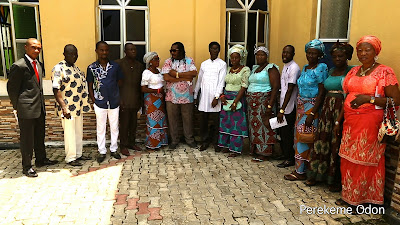 |
| 2017 Isaac Boro Festival Planning Committee Members |
 |
| Crowd @ The Boro Splash 2017 |
 |
| MJ & The RuffHouse Crew |
 |
| Miss Boro Beauty Contest 2017 |
 |
| Wrestling Competition |
 |
| Hon. Tonye Isenah's Wrestling Procession |
 |
| Izonebi Alfred aka JKing |
 |
| Inemo Samiama & Family |
 |
| War Boat Procession |
 |
| War Boat Regatta |
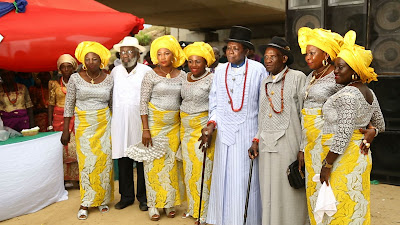 |
| Comrade Ekpein Appah, HRM King Mozy Agara & The Ladies |
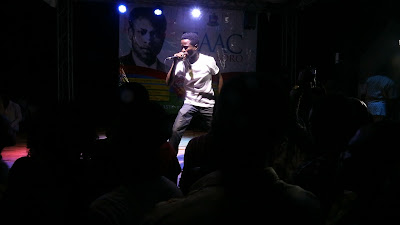 |
| James Izon @ Boro Splash |
 |
| Jossy Will @ Boro Splash |
 | |||||||||||||
| Tarri At The Boro Splash: Photo: Bodise Wilson |
 |
| Izonebi Alfred aka JKing |
 |
| The Arena, Kaiama |
 |
| Barrister Smooth @ Isaac Boro Festival |
 |
| Crowd @ The Canoe Racing Competition |
 |
| Canoe Racing Comprtition |
 |
| Children Cultural Dance |
 |
| King Robert Ebizimor Band |
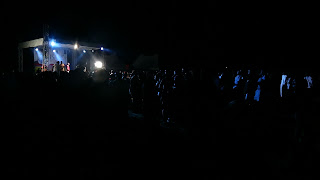 | |||||||||||||||
Boro Splash. Stage/Light Design By Koroye Seitonkumo
|














